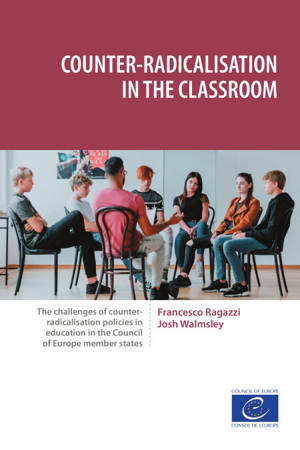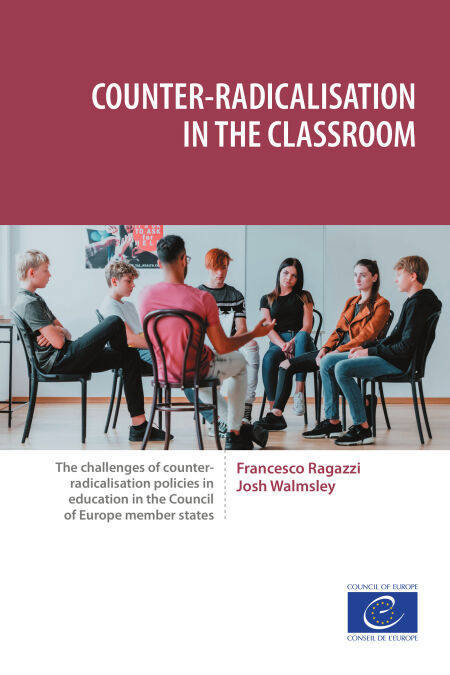
- Afhalen na 1 uur in een winkel met voorraad
- Gratis thuislevering in België vanaf € 30
- Ruim aanbod met 7 miljoen producten
- Afhalen na 1 uur in een winkel met voorraad
- Gratis thuislevering in België vanaf € 30
- Ruim aanbod met 7 miljoen producten
Zoeken
Counter-radicalisation in the classroom E-BOOK
The challenges of counter-radicalisation policies in education in the Council of Europe member states
Francesco Ragazzi, Josh Walmsley
E-book | Engels
€ 11,99
+ 11 punten
Omschrijving
Insights from eight grass-roots projects in Council of Europe member states to address the challenges of policies to counter-radicalisation in education
This report offers an assessment of the effects of counter-radicalisation policies in the education sector, through the empirical analysis of eight grass-roots projects located in schools across the member states of the Council of Europe (Belgium, Bosnia and Herzegovina, Croatia, Germany, Hungary, Norway and the United Kingdom). It provides a detailed insight into how such policies are experienced in practice. The report covers three main areas. First, it offers an analysis of the legislative and political context that led to the development of counter-radicalisation policies, as well as their contestation. Second, based on qualitative interviews and focus groups with project leaders, students, teachers, educators and school managers, it provides a detailed account of the very heterogeneous type of practices encapsulated by the term “counter-radicalisation”. Finally, it shows that while some practices are in line with principles of human rights education and education for democratic citizenship, others risk undermining fundamental rights and the autonomy of education. The report concludes with some key recommendations to the Council of Europe on how to overcome these challenges.
This report offers an assessment of the effects of counter-radicalisation policies in the education sector, through the empirical analysis of eight grass-roots projects located in schools across the member states of the Council of Europe (Belgium, Bosnia and Herzegovina, Croatia, Germany, Hungary, Norway and the United Kingdom). It provides a detailed insight into how such policies are experienced in practice. The report covers three main areas. First, it offers an analysis of the legislative and political context that led to the development of counter-radicalisation policies, as well as their contestation. Second, based on qualitative interviews and focus groups with project leaders, students, teachers, educators and school managers, it provides a detailed account of the very heterogeneous type of practices encapsulated by the term “counter-radicalisation”. Finally, it shows that while some practices are in line with principles of human rights education and education for democratic citizenship, others risk undermining fundamental rights and the autonomy of education. The report concludes with some key recommendations to the Council of Europe on how to overcome these challenges.
Specificaties
Betrokkenen
- Auteur(s):
- Uitgeverij:
Inhoud
- Taal:
- Engels
Eigenschappen
- Productcode (EAN):
- 9789287190321
- Verschijningsdatum:
- 27/01/2021
- Uitvoering:
- E-book
- Formaat:
- ePub

Alleen bij Standaard Boekhandel
+ 11 punten op je klantenkaart van Standaard Boekhandel
Beoordelingen
We publiceren alleen reviews die voldoen aan de voorwaarden voor reviews. Bekijk onze voorwaarden voor reviews.











